#TwitterChat: Safeguarding business continuity during COVID-19 times & beyond
With the economy under severe strain and businesses bracing for tough months ahead, effective planning for business continuity amid the COVID-19 crisis and nation-wide lockdown and beyond is the need of the hour.
The lockdown 3.0 period has just begun from today, and as expected, quite a few of the lockdown restrictions have been eased based on the Red, Orange and Green Zones that the country has been divided into as per the COVID-19 cases in different areas. As people step out of their homes, there are certain measures that will be part and parcel of everyone’s lives – wearing masks and protective gear, social distancing, strict hygiene measures, etc. Work From Home will continue in a lot of sectors.
For businesses returning to some semblance of normalcy, there are some tough market realities that they are faced with – including liquidity crunch, salary cuts, layoffs, slowdown in operations, supply chain management and more.
The narrative now shifts to ‘Revival and Survival’ in the new normal of the post-lockdown world. As Delhi Chief Minister Arvind Kejriwal had said yesterday, we have to learn to live with the Coronavirus in our midst.
Adgully’s prime IP #TwitterChat, has been gaining tremendous traction in the last few months and the engagement and participation has accelerated amid the lockdown period. In the latest chapter of the #TwitterChat, the focus turned to ‘Business Continuity Amidst COVID-19’, where industry leaders came together to give their viewpoints on not only the current scenario of businesses, but also the strategies and key points to adopt post the lockdown.
Joining the discussion were:
Sowmya Iyer, Founder & CEO, DViO Digital (Moderator)
Shibu Shivanandan, Founder and MD, PivotRoots
Sapna Desai, Head – Marketing and Communications, ManipalCigna Health Insurance
Arvind RP, Director - Marketing and Communications, McDonald’s (West and South)
Bhavana Mittal, VP (Head)- Media and Digital, RP-Sanjiv Goenka Group
Arjun Mohan, India CEO, upGrad
Rohit Kaul, General Manager Marketing, HCL and Shiv Nadar Foundation
Mohit Goel, Co-Founder, ChqBook
Shanai Ghosh, ED & CEO, Edelweiss General Insurance
Samir Kapur, Director, Adfactors PR
Iyer began the round of questions with what she called, ‘A Billion Dollar’ question – the strategies being reshaped to ensure continuity of business.
A billion dollar question. Literally !
— Sowmya Iyer (@sowmyaciyer) May 1, 2020
What are some of the ways you are reshaping strategy for business continuity ? @_arjunmohan_ @arvindrp@bhavanamittal @mohitgoel75@SeekingNorth @sapna24desai @GhoshShanai @shibudotcom @samir_kapur @adgully @kheraniausaaf pic.twitter.com/wA4YVst3yj
Ghosh stated that, “Getting back to office will need to maintain physical distancing so more efforts will have to go into community building, digital collaboration tools will be critical Ensuring continuity as we have already been doing at Edelweiss. Business operations have to revolve around three key words: social distancing , digital operating model and workplace hygiene and disinfection ensuring continuity in Covid-19 times. “She further added, “BCP plans were earlier location based contingency planning, this episode has taught us that all locations can go down at once, digital operating model at Edelweiss allowed us to operate anytime anywhere #ensuring continuity.”
Goel continued the round of answers and said, “Assess impact on the core of your business: your people, cash flows, product offerings. Make sure you have enough runway – at least 2 years. Reimagine SOPs suited to post COVID-19 world.”
Furthermore, Desai added, “A robust planning process with backup plans and continuous reassessment. Prioritise delivering existing promise to current customers thereby minimizing the reputation loss and hence business impact.”
Shivanandan pointed out, “Well, you have rightly put the question - RESHAPING is key for business continuity! We all are ready with our 2020 plans, but clearly the current situation requires forward thinking, new strategies and re-planning on many fronts.” He adds, “Few things to really look at are:
- Make sure teams are taken well care, both in terms of physical & mental health
- Re-plan business with scenarios (considering impact to last long
- Plan for cash flow, in the short term & long term
- Sit back & re-think strategies and next steps for your company
- Go the extra mile and be agile, you might need to restructure your internal teams”.
Giving the perspective of McDonald’s, Arvind RP said, “While it's critical to dial-up the digital quotient of our business which is McDelivery, it's also equally important to manage our employees and customers in terms of health and safety !” He further added, “It's also important to look at learnings from markets like China and Korea who are coming out of the crisis, their consumers behaviour in the new normal as well as how categories are responding - best practices.”
Talking about his experience of the lockdown, Mohan said, “I think I am myself an apt example of this. I got onboarded as CEO - India for the nation’s largest higher education company fully online - my joining date was April 1, right amid the lockdown.” He further added, “Agility is the name of the game. Change things to adapt to the new normal and be ready with solutions which will help your customers adapt. Agility shown by the leadership is key in sailing through these unpredictable times.”
Mittal stressed that, “The business has to reinvent itself to cater to the new needs of the consumers post this period. This means preparing ourselves with newer product propositions, messaging and newer ways to reach them.”
Kaul added here, “Review the business model especially revenue model and brand equity, identify areas which can move to digital, retool your product to continue to deliver value to your customers, brace for the worst.”
Kapur concluded the first round of answers and said, “Review the business model especially revenue model and brand equity, identify areas which can move to digital, retool your product to continue to deliver value to your customers, brace for the worst.”
Going on to the next point of discussion, Iyer enquired about the decision making aspect during this time and how businesses can be more proactive.
Leaders have a mammoth task at hand, i.e. to make timely decisions. Their decisions will decide the fate of the business and employees.@_arjunmohan_ @arvindrp@bhavanamittal @mohitgoel75@SeekingNorth @sapna24desai @GhoshShanai @shibudotcom @adgully @kheraniausaaf @samir_kapur pic.twitter.com/2i100mX7g6
— Sowmya Iyer (@sowmyaciyer) May 1, 2020
Mohan pointed out, “Pay attention to your consumers- understand the shift in consumer’s preference, behaviour, lifestyle. Brands should come across caring, not exploiting the situation.”
Mittal went on to say, “Nothing could have really prepared us for a calamity of this scale. Now that we have learnt, it's important to keep a constant lookout and ensure that the teams are well equipped to ensure business continuity. Something as simple as a good Wi-Fi.”
Giving some strategies, Ghosh stated, “Aggressively use analytics to catch trends, ear to the ground will take new meaning and importance in and post. Difficult choices to make in the interest of employee safety - Surveillance apps such as Aarogya Setu will have to be utilized with minimal compromise of privacy post covid-19.” She further adds, “COVID-19 has taught us to deal the dichotomy to little data and information overload, leaders have to balance data judgement and discretion at this time.”
Shivanandan said, “It is crucial to turn things around rapidly, & involvement of senior leadership needs to be much higher in the operations, client interactions & decision-making.”
Kapur stated, “This is also the time when leadership across the globe and across sectors will be under scrutiny. Leaders action whether is government, departments, companies, institutions will separate wheat from chaff.” He added, “Leaders indeed have a huge task at hand. Speed, agility, empathy and sensitivity will be under scrutiny from all quarters.”
Giving his inputs in detail, Kaul stated, “Leaders need to display 3 traits - Empathy, curiosity and decisiveness. Empathy - Listen to your customers and your employees more than ever. Have ears to the ground. Meet (virtually) as many of them as possible.Curiosity - In a new world order, existing marketing and product ideas will not be relevant. So be very curious and don’t say no to any product/messaging idea on the face. Explore more.” He further added, “Decisiveness - Once you have done above 2 steps, be decisive in your actions. It is ok if you are unsure about what you are doing, we all are. But decisiveness will get you time to course correct later.”
Goel continued the round of answers and said, “We need to run stress tests on our business plans & financials. What was applicable till 30 days ago, is no longer applicable. Build new scenarios and run tests on those as well. Remain agile. Review operating costs. Review contracts.” He adds, “ At Chqbook, we have reorganised teams to push product lines that require no physical engagement with the customers. We are building accelerated capability for intuitive decision making. Strengthening our digital capabilities remains top priority.”
Desai pointed out, “Ensuring the health, well-being and safety of the team .Physical distancing but connecting more than ever virtually. 3 C's for a leader - Care, Connection, Communication”
Arvind RP concluded the round of answers and said, “One way for leaders to respond to this crisis is to have a dual track - a crisis mgmt team to deal with cash flows and employee and customer issues. And two, a separate team that looks to the future, how consumer behaviour is likely to change and how the business models need to adapt.” He further adds, “It is important to note how empathetic the leader has been during the crisis is critical – to both employees and to the customers through the brand. Employees and customers will remember how the brand made them 'feel' during the crisis.”
Iyer then pointed out the fact that social distancing is going to continue. Many aspects of business are going to continue to be disrupted. She enquired about how business can function in the usual way.
Social distancing will continue, buying behaviour will change, work travel will be impacted. How do you imagine your business-as-usual? @_arjunmohan_ @arvindrp@bhavanamittal @mohitgoel75@SeekingNorth @sapna24desai @GhoshShanai @shibudotcom @adgully @kheraniausaaf @samir_kapur pic.twitter.com/Qy6Ynv60pB
— Sowmya Iyer (@sowmyaciyer) May 1, 2020
Kapur stated, “This disruption has fast forwarded the entire adaptability rate by 4 to 5 years. The technologies that were still in the nascent stage will be adapted in the mainstream quickly. Supply chain, retail consumption, usage of digital platforms etc, every element will change.”
Desai added, “Keeping the customer needs at the centre and fulfill that need in different ways. There is a new business-as-usual that is more flexible, more digital, more innovative, more lean and agile.”
Ghosh said, “Digital Operational model that allows employees to work anywhere anytime, partners and customers to connect seamlessly is critical post covid-19 ensuring continuity, as we have done Edelweiss. Digital first should become the norm, but changing mindsets of customers and partners critical, COVID-19 has accelerated this digital shift.” She further added, “Keeping engaged in the times of physical distancing will require the leaders to stay connected and display the highest levels of empathy, never before has EQ been more important that during the COVID-19 pandemic.”
Kaul pointed out, “It depends on which business you are in. If you are a business where the value is realized digitally by the customer (edtech, OTT) BAU will not be hugely different. In fact one may struggle to maintain the uptick seen in the last 1 month.” He adds, “New BAU will mean 50% of employees will continue to WFH, your customers will ask for certifications such as fully sanitized, contact-less, arogya setu, your long term planning will get replaced by QSQT plan - Quarter Se Quarter Tak.”
Talking about McDonald’s, Arvind RP said, “First, there isn't business as usual anymore.We have launched contact-less McDelivery and promoted it aggressively.” He added, “Social distancing, maintaining high standards of hygiene and employee health is critical to bring back dine-in. We are working towards that.”
Mittal tweeted, “At work, more emails which could have been meetings, video calls, maybe more WFH days. At the business front, increasing accessibility for consumers, ensuring contactless delivery and finding newer ways to reach them, with the changed media behaviour.”
Shivanandan continues the round of answers and says, “Business leads need to have enough empathy towards situations, team’s physical & mental health should be top priority. Flexible working time, travel during non peak hours for the teams would be a great boost. For agencies specifically, business leaders must communicate to clients constantly to ensure that they too show empathy towards their partners and are cognizant of the challenges faced due to these issues.”
Kapur added, “This is the biggest disruption that the human kind has seen ( at least in a century). Every element of the business, life, society, behaviour is getting disrupted. We use to use VUCA as term loosely in management lectures but this is truly the biggest VUCA movement.”
Goel said, “BFSI is surely headed from being digital first to digital only category. While fintech and start-ups do their bit, it’s important for the government, the regulators and the banks to increase their activity on enabling the ecosystem digitally.” He adds, “Urgent focus and change is required on digitizing customer onboarding. Video KYC, E-sign, Aadhaar stack for processing applications must be made available at the earliest. Zero charge on card transactions that BFSI/ merchants have to currently bear.”
Mohan concluded the round of answers and said, “Be flexible and adapt to the disruption. Evolve your business plan, marketing plan as the situation evolves. Keep your customer as the centre of your strategy.”




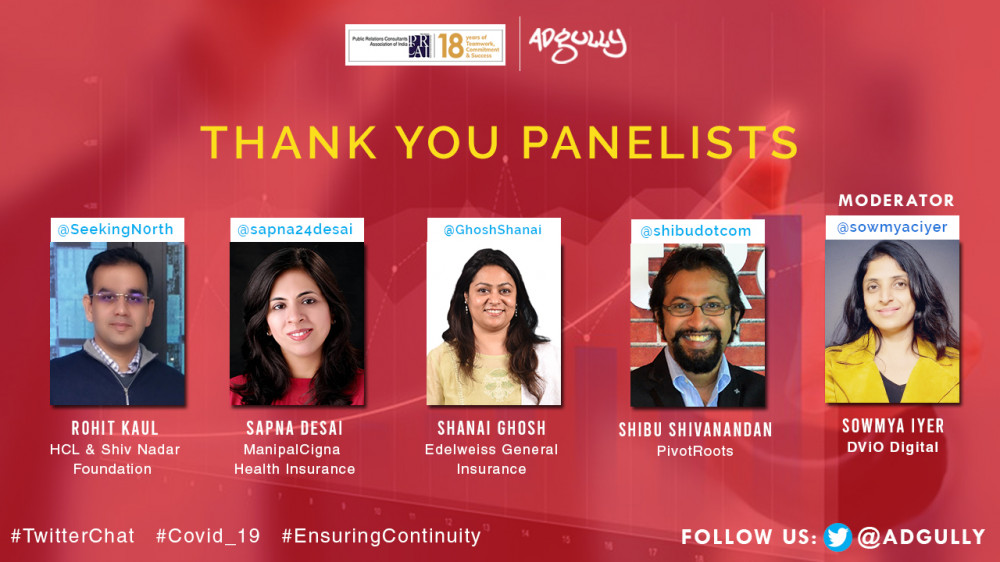
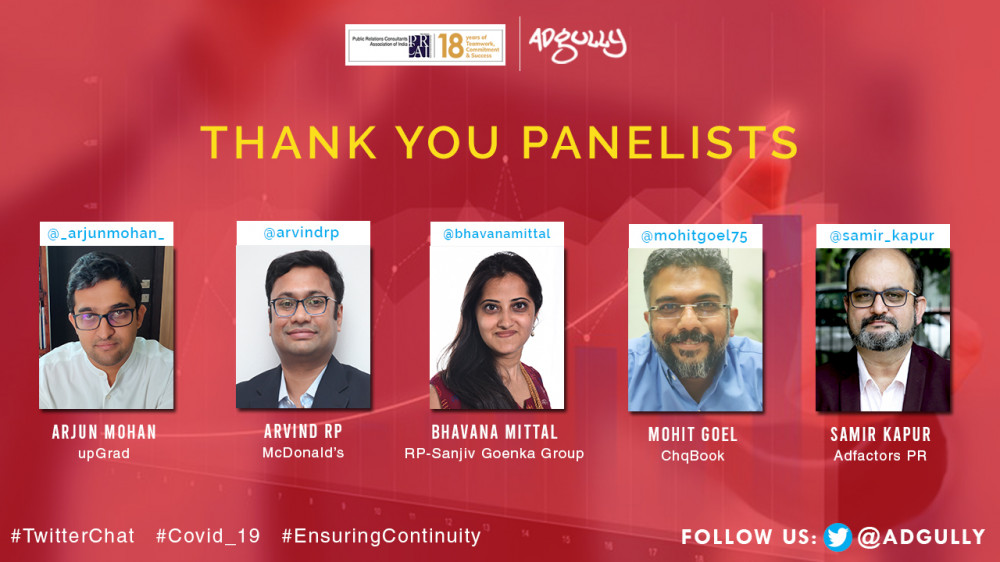


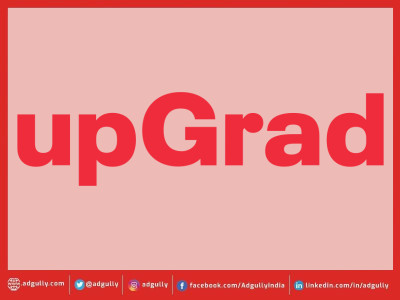


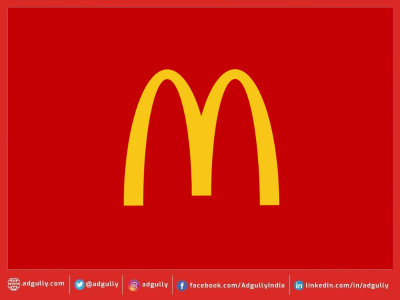
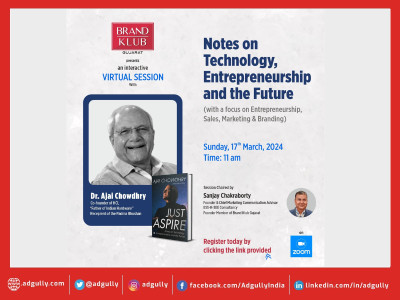

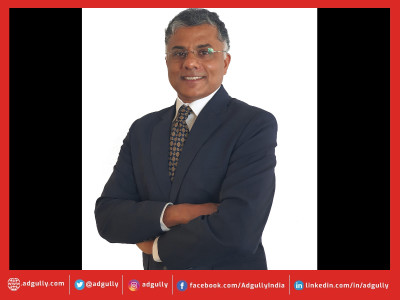
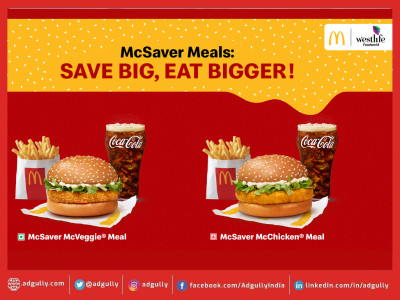




Share
Facebook
YouTube
Tweet
Twitter
LinkedIn